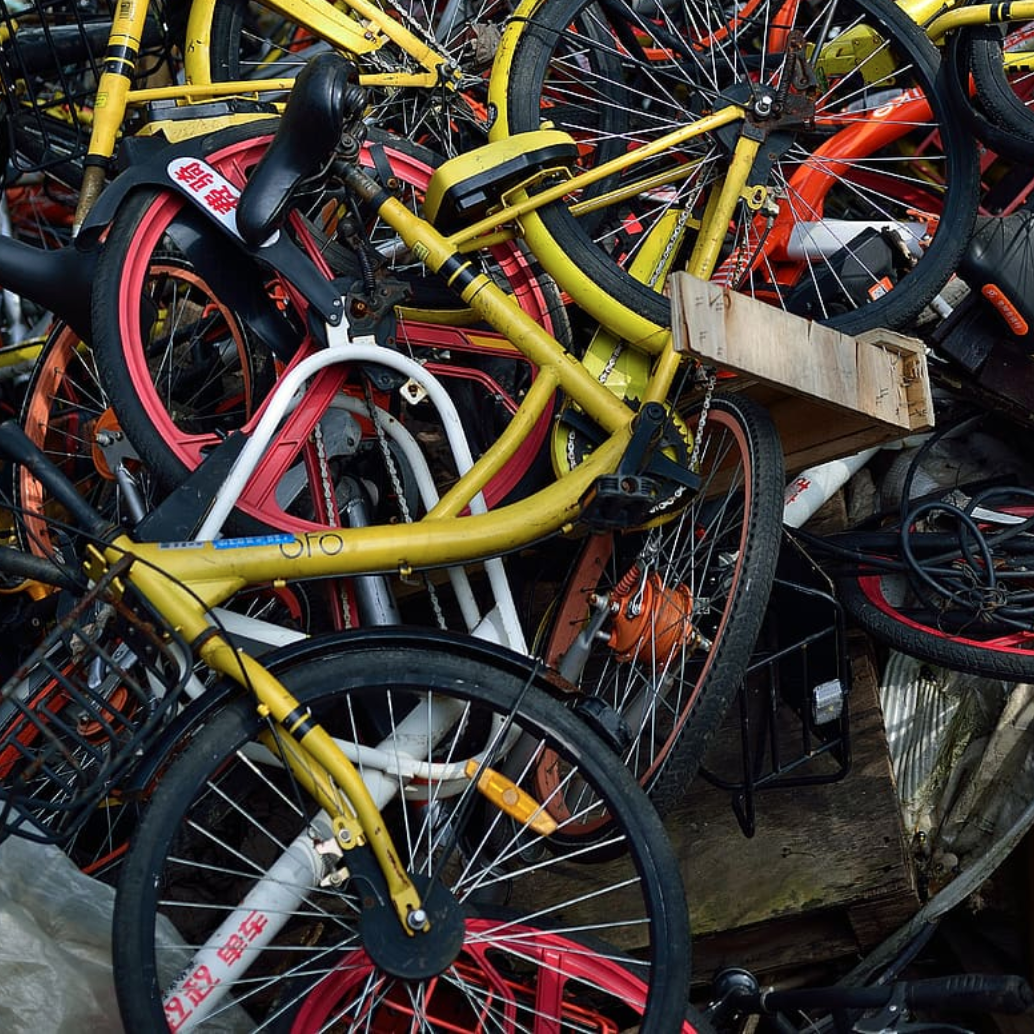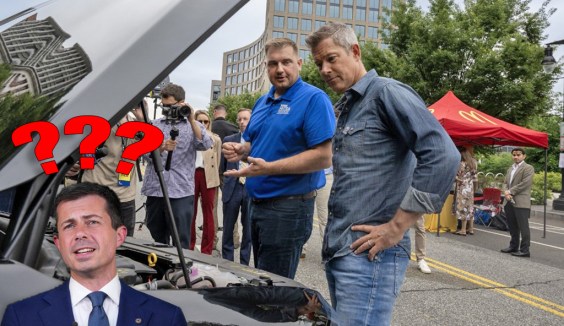A controversial plan to limit the number of scooter- and bike-share operators in the nation's capital has some advocates wondering why micromobility providers are again being held to higher standards than are drivers, automakers, and car-related businesses.
In an open letter to the District of Columbia's Department of Transportation, representatives of scooter companies Bird, Lime, Lyft, and HelBiz pushed back against the news that the agency is reportedly considering capping the number of companies offering dockless scooter rentals at eight while allowing only three companies to operate bikeshare.
The seven micromobility outfits currently operating in D.C. already comply with a raft of city policies, including fleets caps of 820 to 2,500 vehicles — and fear they could be nudged out by new competitors just as COVID-19 surges threaten to send demand for the mode surging, too.
"Collectively, we have delivered uninterrupted service of shared micromobility options in D.C. for nearly three years, including during the last year and half of the ongoing COVID-19 pandemic and District-wide State of Emergency," wrote the reps. "As experienced operators and long-term partners to the District, we believe that the best next step for the program as we look to 2022 is to extend the current micromobility permits for an additional year."
Under the new process, companies would be assessed on a 198-point rubric that gauges the companies' commitment to safety, equitable access, and fair labor practices, among a list of other sky-high standards that some argue would more logically apply to car-based enterprises.
App-taxi operators such as Uber do not have to pass such extensive tests in order to operate on Washington roads and can deploy as many drivers as they wish, despite such companies' record of contributing to congestion, harmful emissions, and more. Private vehicle owners can also register as many vehicles as they like throughout the U.S. provided they meet safety and emissions requirements.
Wow. Rules put burden on the scooter operators for scooter locking in DC. pic.twitter.com/kkX16LJr0Z
— @paulkrikler 🚲🛴🦽🚠🚂 (@PaulKrikler) September 6, 2021
D.C.'s new scooter cap would be another entry on laundry list of standards that overwhelmingly apply to providers of safer, greener mobility options and not to automakers and drivers.
Most of the letter's signatories spoke out last October against a sweeping bill that soon will require all scooters to be locked to racks or other stationary objects after use, a constraint they called onerous because of the dearth of bike racks in many neighborhoods. (D.C. also requires drivers to follow parking laws, but drivers have more than 17,000 taxpayer-sponsored, on-street parking spaces available to them.) Providers argue that the proposed cap could force providers out just weeks after they will have spent serious money complying with the earlier mandate, which goes into effect October 1.
'This requirement required a major investment for existing operators, with hardware retrofit and installation costs, new user and staff education, and photo review requirements, all with only three months of certainty in the market," the letter continued. "The cost of this retrofit and the uncertainty of the future of the program has unfortunately already led one operator to drop out of the market."
Notably absent from the letter was Ford-owned scooter company Spin, which was granted one of four permits the last time the District permitted competitively. (DDOT later opted to extend all companies' contracts around the time the District went into lockdown, so no companies were forced to pull fleets.) The company earned high marks under the city's scoring scheme, in part thanks to its commitment to hire full-time workers for fleet charging and maintenance rather than gig-economy contractors.
"We hope to have the opportunity to expand our investment in the local community by hiring more W-2 workers and putting more vehicels on the streets of our nation's capital," said Josh Bear, regional manager for Spin, in a statement to Streetsblog. "We look forward to collaborating with DDOT to ensure the city maximizies the benefits of micromobility solutions."
Other scooter companies, which have adapted their labor practice in response to other communities' mandates, would probably like that opportunity, too — if DDOT's caps don't force them out, first.
Streetsblog asked the DDOT whether it is considering vehicle caps or a competitive permitting process for operators of app-taxis, or private drivers. The agency hasn't responded.






